The penultimate episode of Game of Thrones season 8 was possibly the most tragic yet. Prophetically named ‘Bells’, the episode was the ominous death knell for several beloved characters on the show.
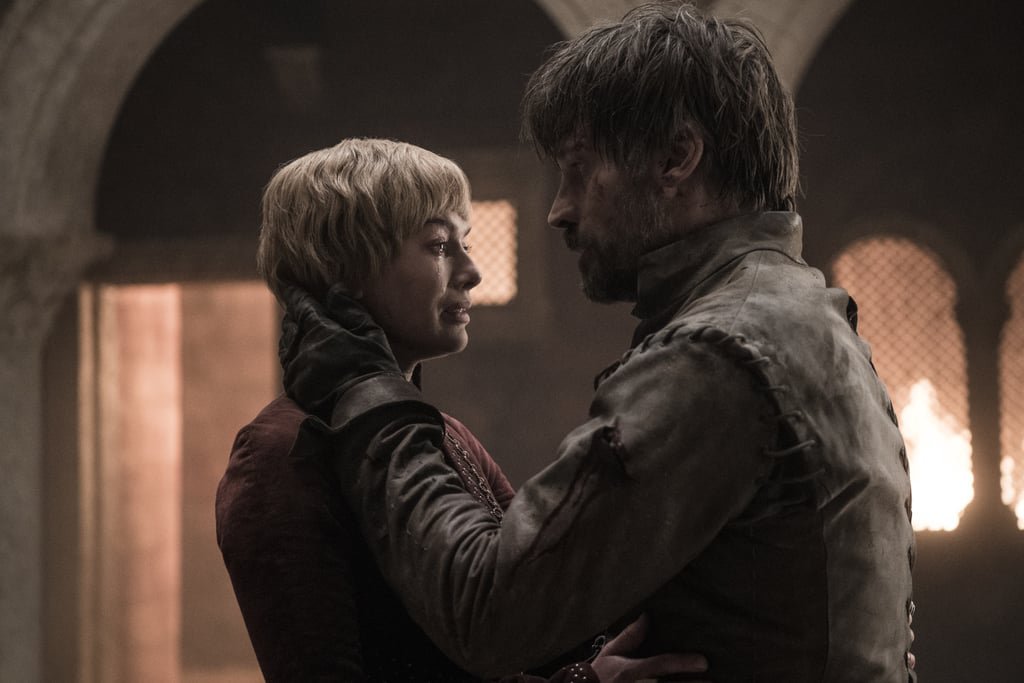
While we felt strongly about nearly each death that occurred in the episode, one of the biggest punches to the gut was felt when Sandor Clegane, aka, The Hound fell to his demise.
It was a heartbreaking end for an admired anti-hero. However, it was a satisfying conclusion to his story. Given, he died a painful death — bested in combat with his overpowering undead brother — but it was the closure he needed all his life to go in peace.
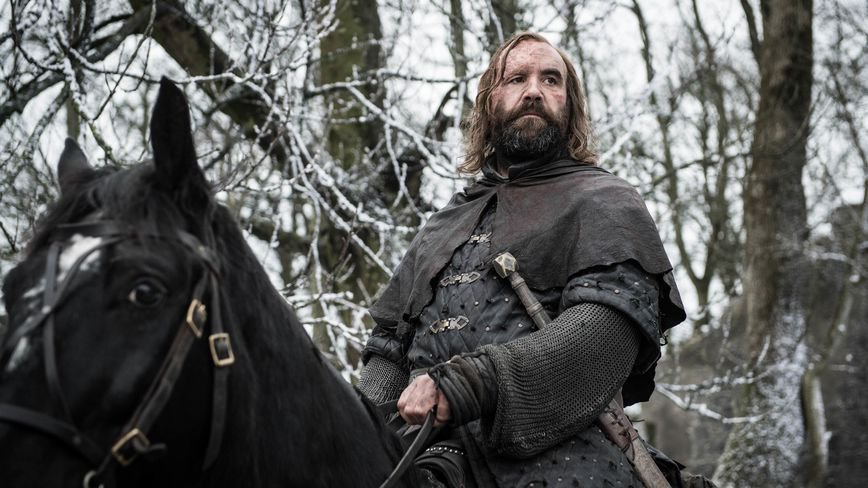
One of the very first things he does on the show is murder a child — the butcher’s boy, Mycah — and yet, here were are, years later, mourning his loss.
When we’re first introduced to him early on in the show, it’s pretty clear that his motivations lie in a morally ambiguous grey area. Described clearly by how he does unthinkable things for the nobility, his knightly ways were less than honourable, per se. But underneath it all was a nuanced individual who fought against all odds to not turn into the worst version of himself — personified by his brother Gregor Clegane, aka The Mountain.
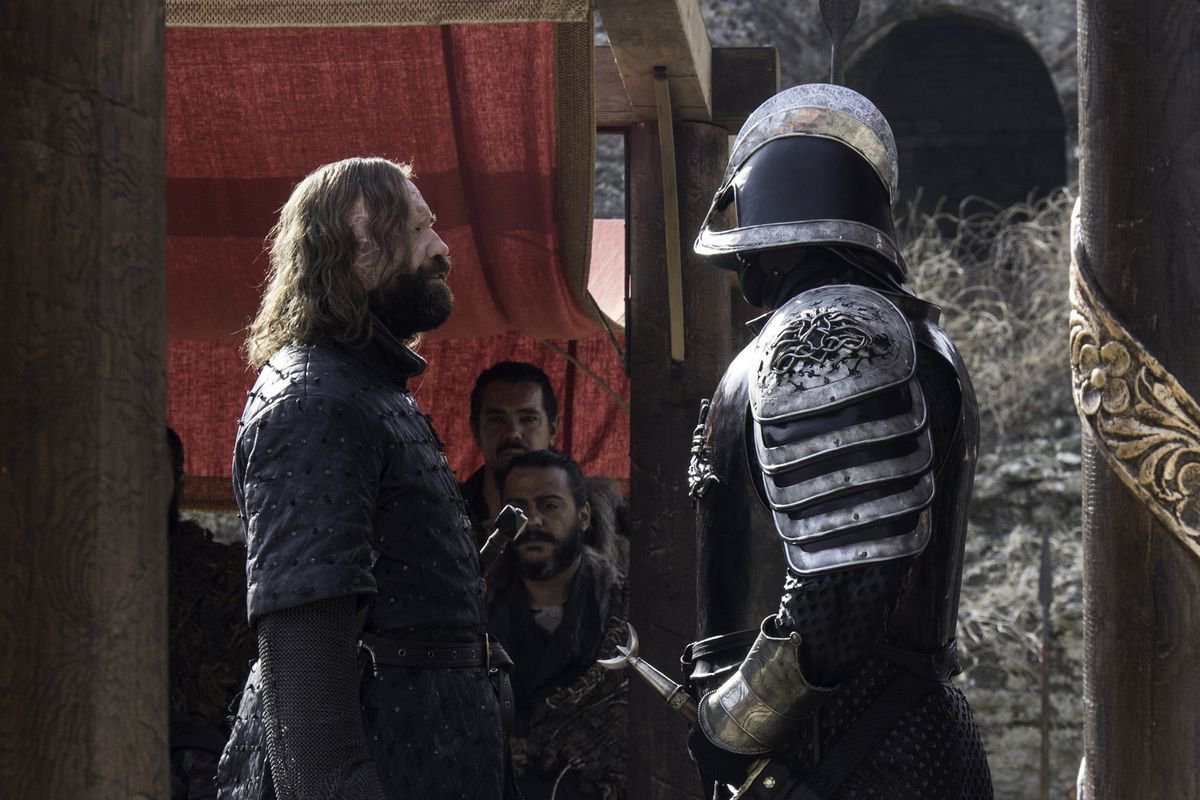
As the show progressed, we slowly learn how his persona was deeply rooted in tragedy and trauma.
We gradually felt the physical and emotional burn scar his brother inflicted on him. And in his last moments, we truly felt like we were losing what had essentially become one of the most real characters of the show.
A turning point in his life comes when something in him snaps at the Battle of Blackwater. His childhood trauma brings back his fear of fire and at that moment he comes to realise the futility of it all — war and aristocracy. This and his attempt to rescue Sansa immediately after and smuggle her out of the city makes us all see him in a completely new light. Hence began the onset of our soft corner for this ‘gentle giant’.
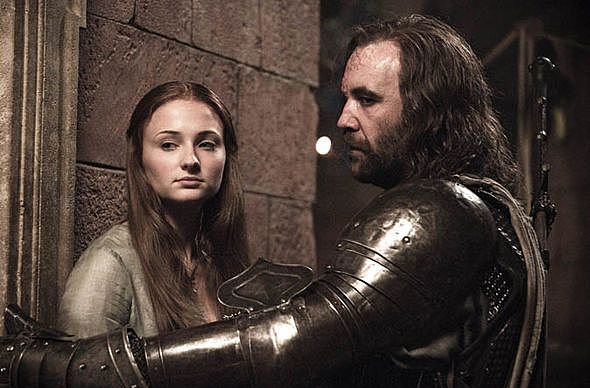
It is notable that his redemption arc gained significant momentum when he ‘kidnaps’ Arya.
What starts as essentially a hostage situation soon develops into mutual respect cloaked in a love-hate relationship.
In their own way, Sandor and Arya were a reflection of each other. His camouflaged paternal instinct was the adult manifestation of Arya’s tough exterior. And without each other, they would’ve possibly not survived the treacherous path they were on.
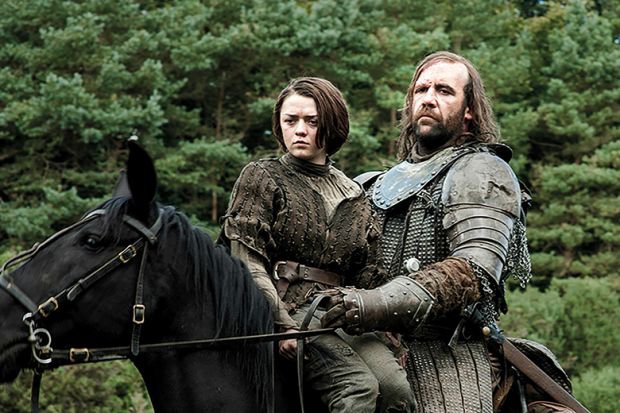
Before his final moments, this relationship gets the perfect closure it deserved when Arya calls him by his name and says “thank you”. For us, he is already on the path to die in peace when his adoptive daughter of sorts acknowledges him as a father-figure in her life.
Even her simple act of removing him from her hit-list was symbolic of her (and the audience) absolving him of his past sins.
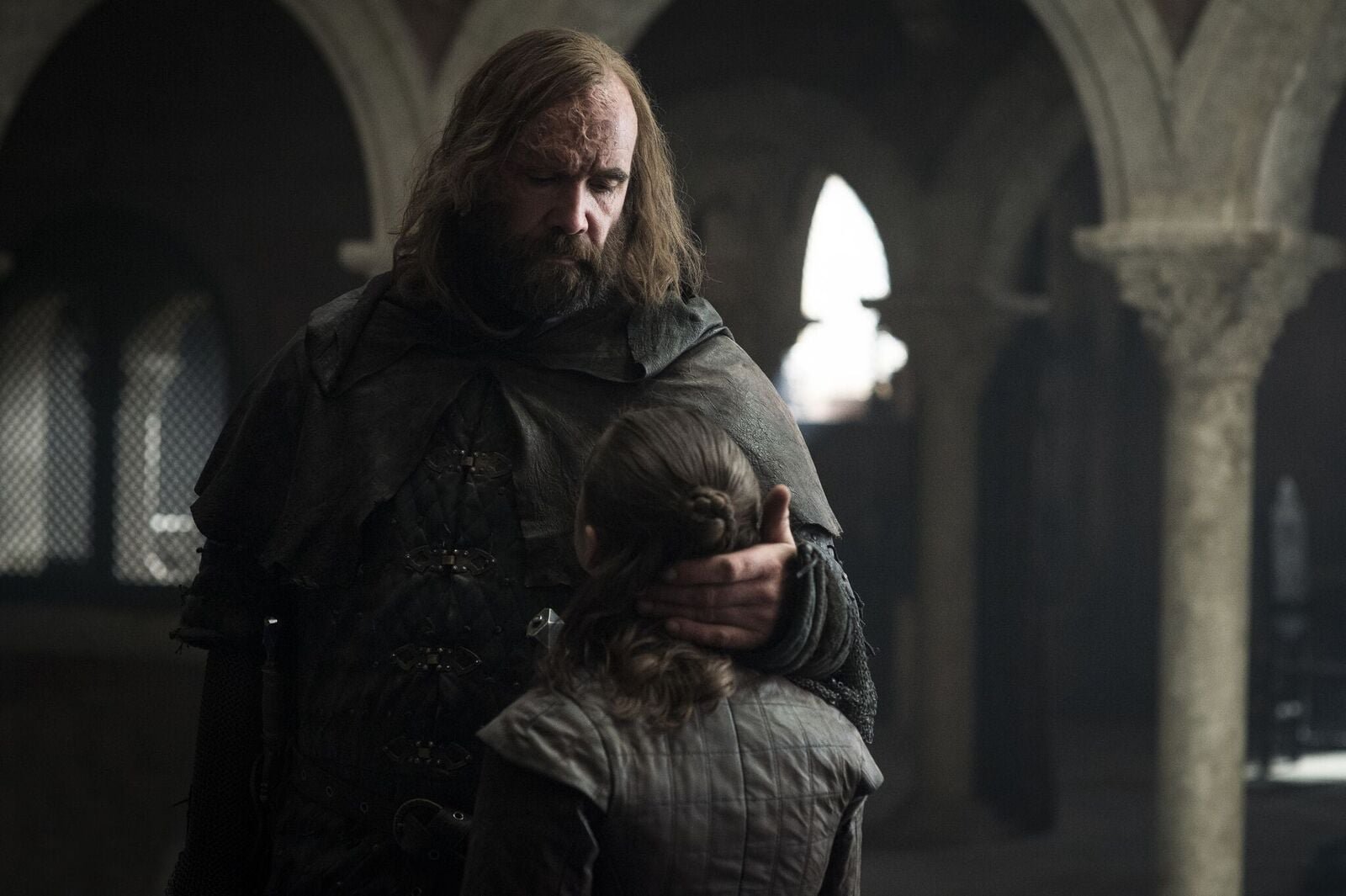
Throughout Sandor’s journey, he is constantly made to revisit his past and is given chances to right his wrongs.
Change is often a matter of choice, and more often than not, he always sought the right choice when he got the opportunity.
When Sandor develops a genuine friendship with Beric Dondarian, whom he had once ‘killed’, it is symbolic of him embracing his newfound humanity. Even him giving proper funeral rites to the farmer and his daughter he had once stolen from proves his resolve to stay focused on his redemption path.
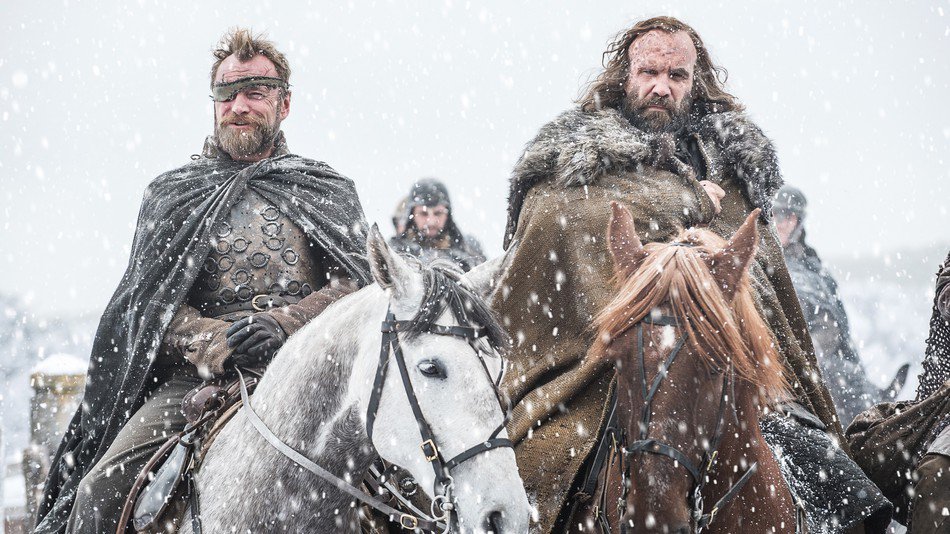
While his journey was one of positive change, the one constant that remained in his life was his hatred for his brother. And it was poetic that by the time he comes to kill The Mountain, The Hound has transformed into a complete antithesis of this personification of evil.
His final blow of plunging to his own death, taking his brother with him was the pinnacle of heroism owing to his fear of both his brother and fire.
But while it was the sorrowful end to what was essentially the heart of the show, in its own way it was a happy ending for Sandor.
He died doing what he yearned for — getting his revenge. In his last moments, his life came full circle — he overcame his fear of fire, was acknowledged for the care of his adoptive daughter, and getting the revenge he’s been wanting his whole life.
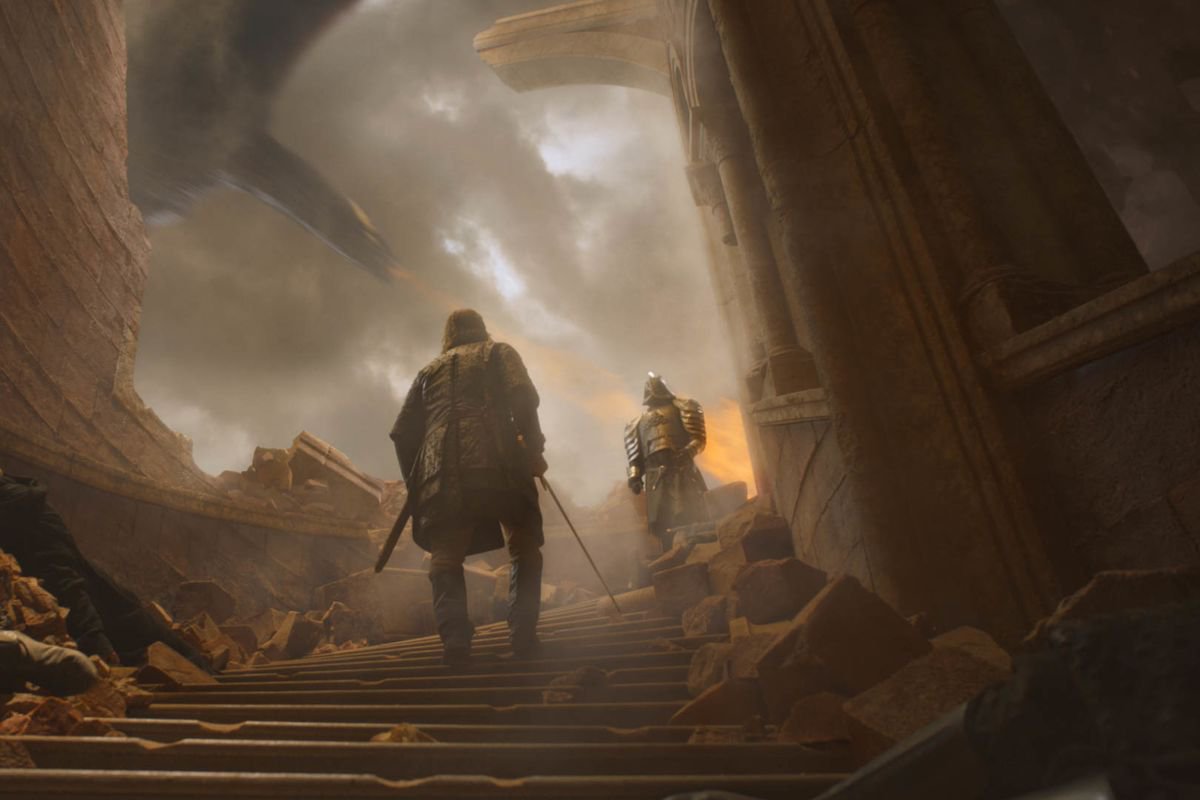
In the unfair world of Game of Thrones, there couldn’t have been a better and more conclusive ending to a character. While the show has left its viewers with a mixed bag of emotions, there is a universal love for The Hound, a celebration of his life well lived, and an ending well deserved.

















